Key Insights from the World Health Summit 2024
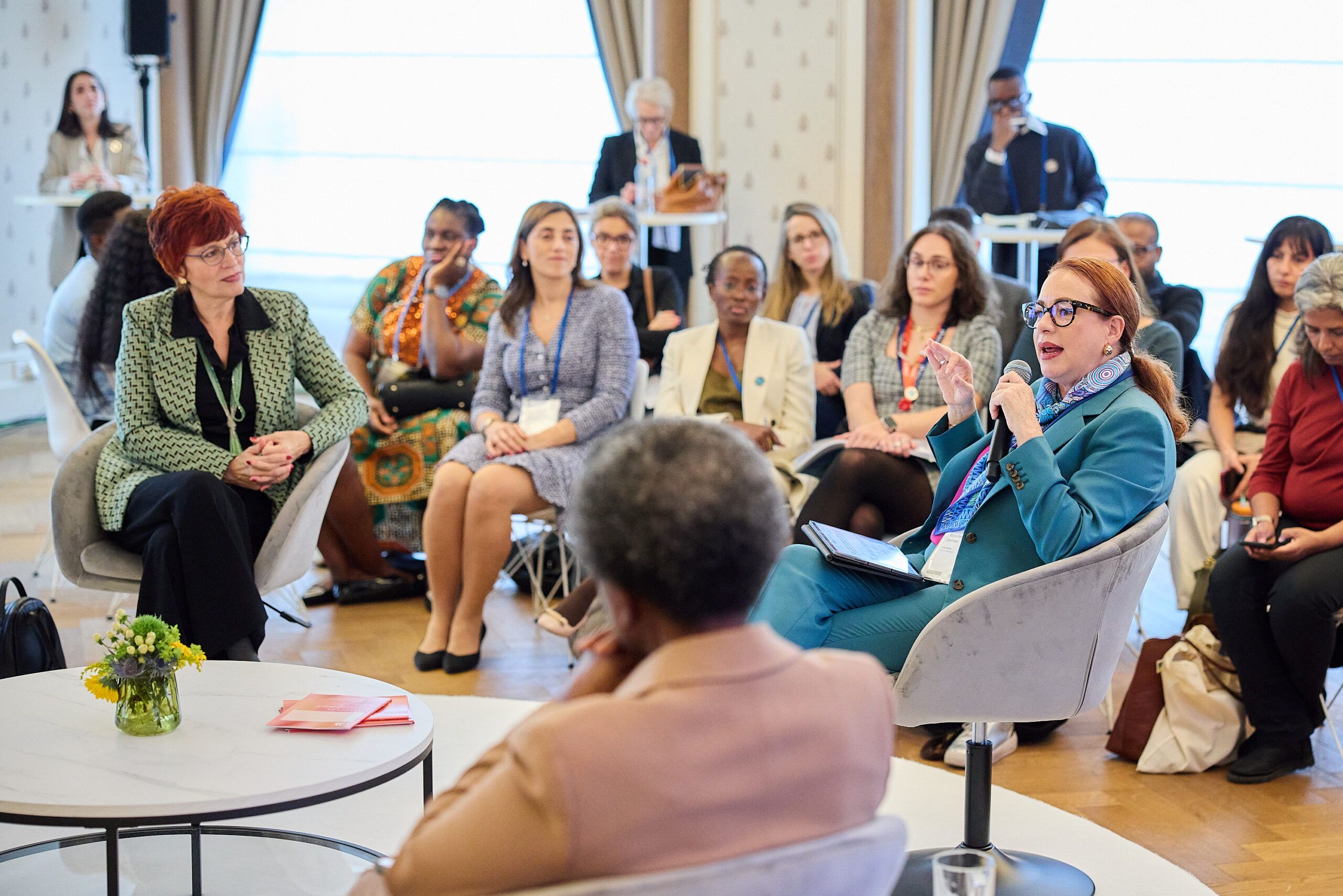
Share
The World Health Summit 2024 (#WHS24) recently convened leaders and experts in global health to discuss pressing issues, in Berlin, Germany. A pivotal panel on “Women’s Leadership for Women’s Health”, co-hosted by GWL Voices and the Partnership for Maternal, Newborn & Child Health (PMNCH), explored the vital role of female leaders in shaping health policies that address women’s unique health needs. Moderated by GWL Voices co-founder, Helen Clark, the panel featured distinguished speakers, including the GWL Voices Executive Director, María Fernanda Espinosa; the GWL Voices member and vice-Board Chair of Foundation Botnar, Flavia Bustreo; the President of the US National Academy of Medicine, Professor Victor J. Dzau; and the co-chair of the Global Preparedness Monitoring Board, Joy Phumaphi.
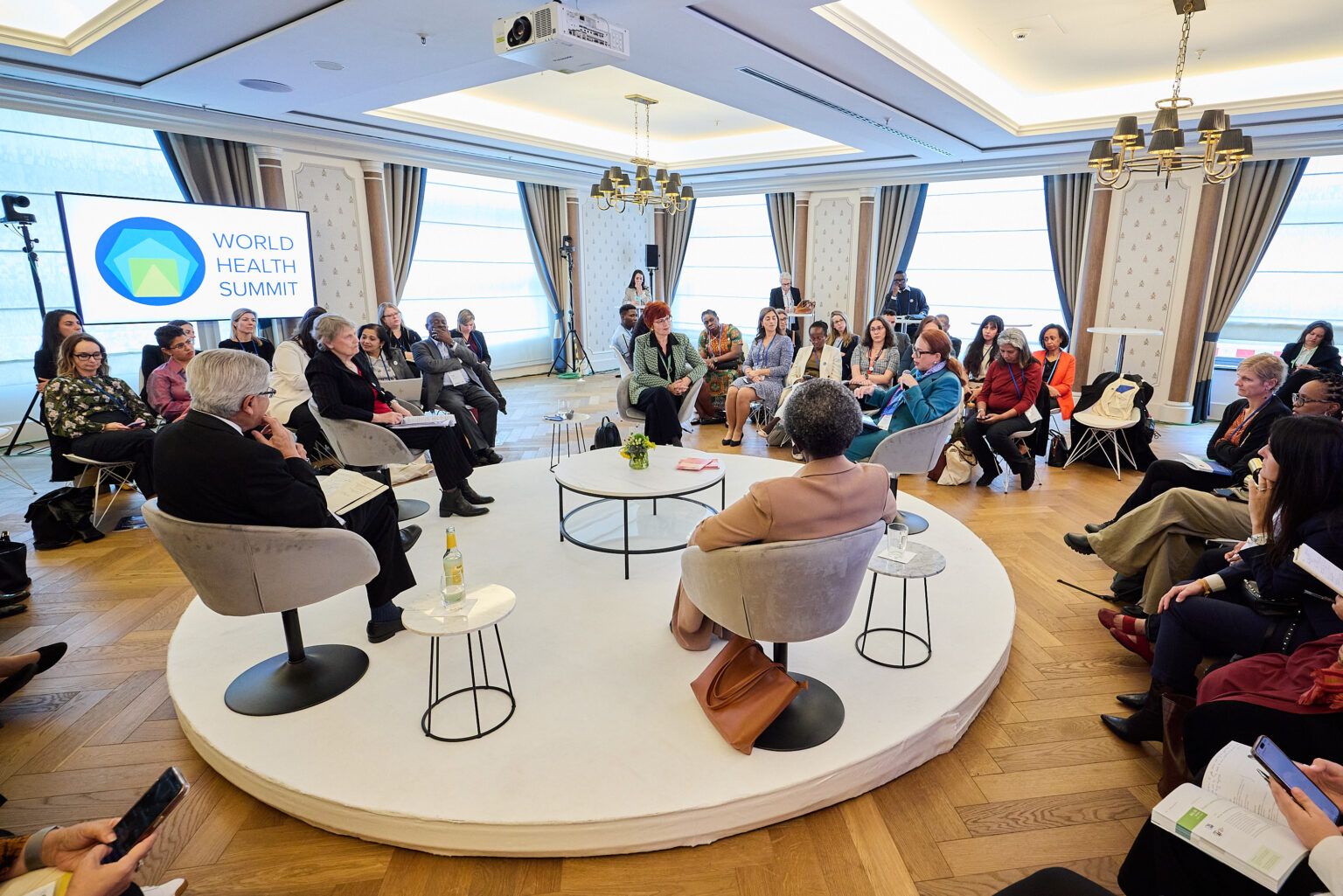
The Role of Female Leaders During the Pandemic
Helen Clark opened the discussion by highlighting how female leaders demonstrated exceptional qualities during the COVID-19 pandemic, however we continue seeing how women are often left out when it comes to health crises. “They showed empathy, listened to the evidence, and communicated effectively,” she noted. Clark emphasized that these attributes exemplify the essence of women’s leadership, which is critical in times of crisis. Her insights underlined the need for leadership that prioritizes human connection and responsiveness in health care.
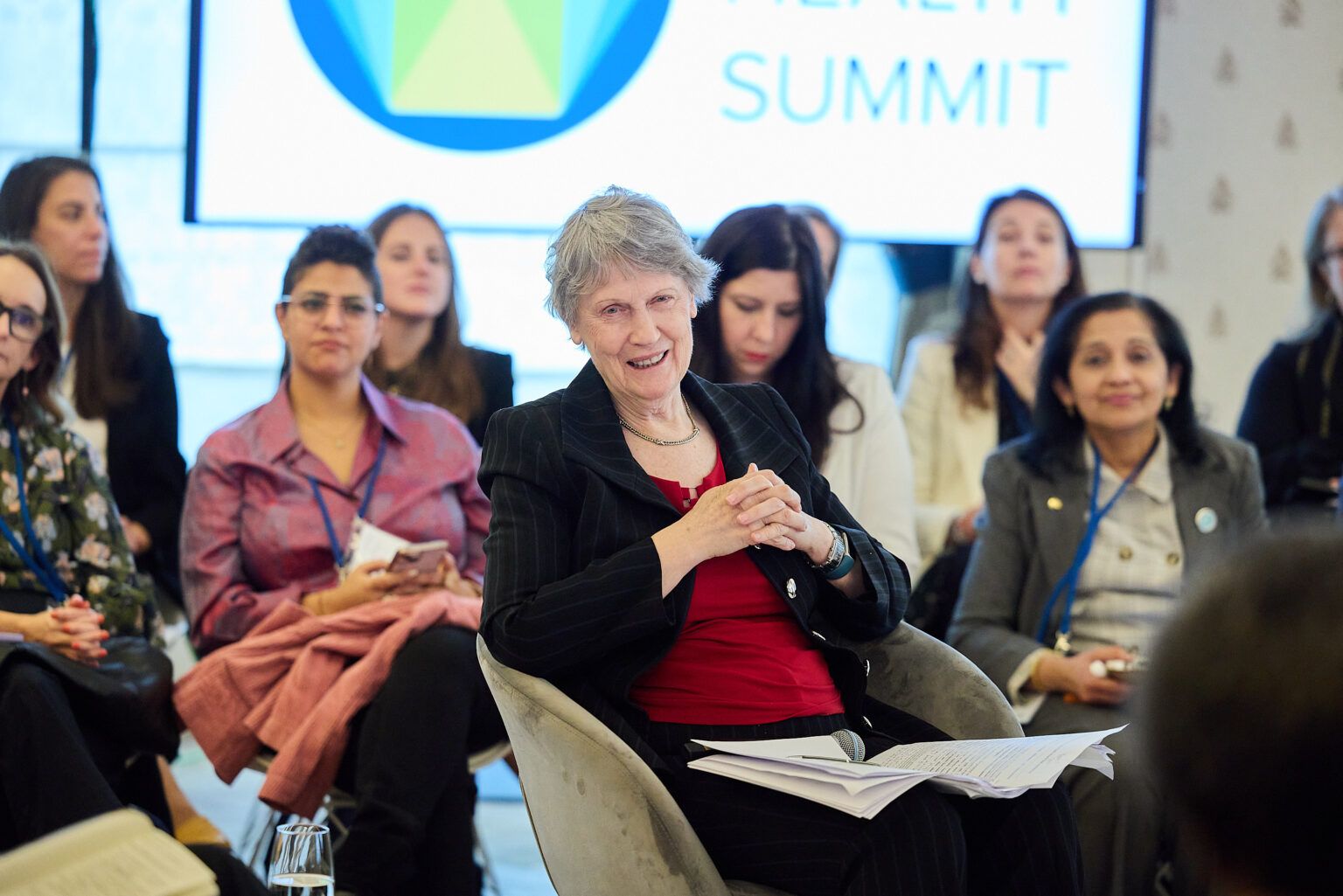
Understanding Women’s Health
Professor Victor J. Dzau addressed the systemic issues surrounding women’s health, stating: “The understanding of women’s health is so poor. Who thinks about these issues?” He stressed that women’s voices are essential to ensure that health initiatives are not solely viewed through a male lens. “Women leadership matters because of their experiences that men don’t have,” Dzau added, underscoring the importance of diverse perspectives in health policy development.
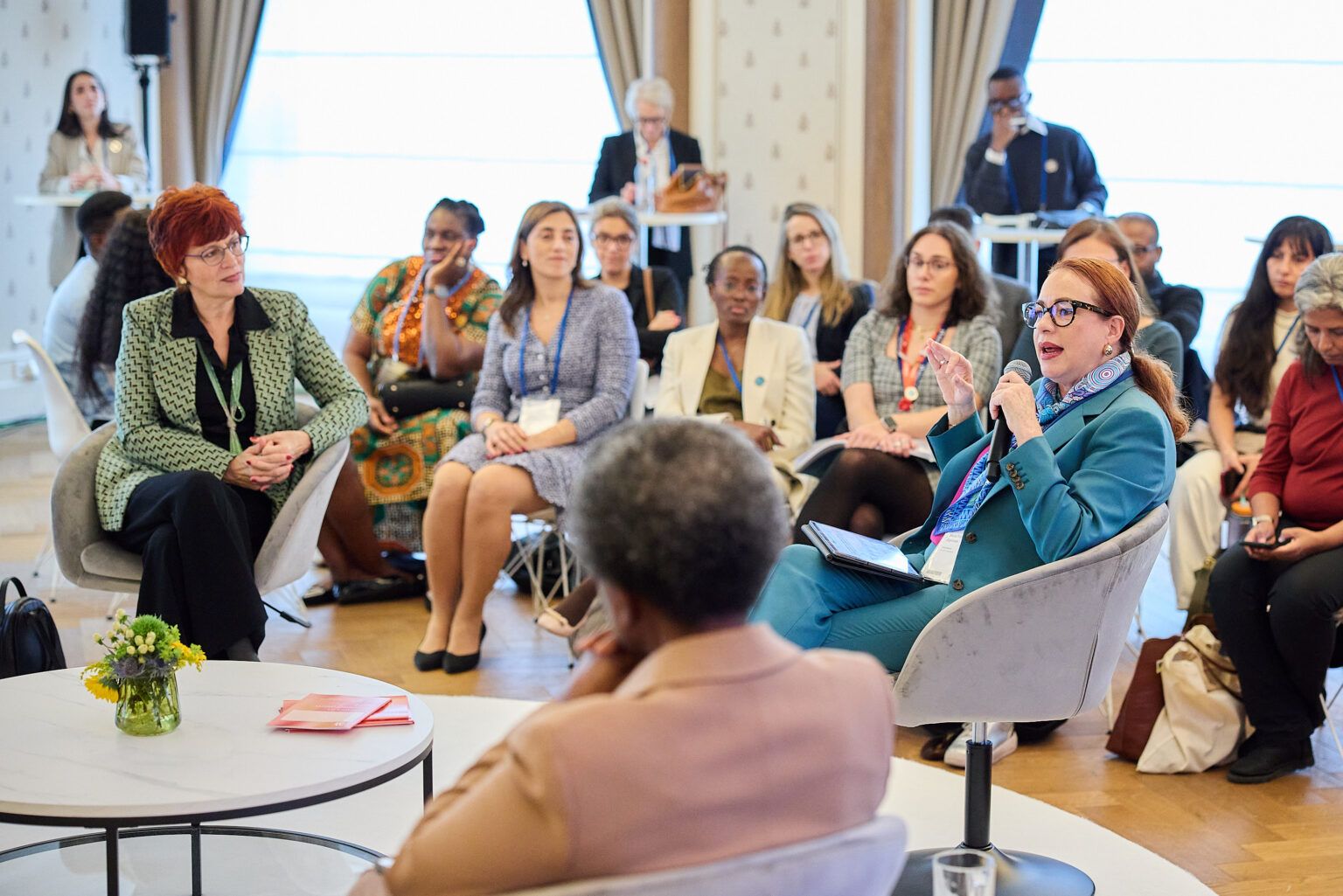
Addressing Deep-Rooted Biases
Joy Phumaphi shed light on the entrenched biases that affect women’s health. “Women’s health issues come from deep-rooted biases—we are born with them and raise our children with this bias,” she stated. Joy urged that these biases are not just the responsibility of women but of society as a whole, saying, “We are all guilty, men and women, of promoting these biases.” She called for legal recognition and protection of women’s rights, emphasizing the need to combat these deeply entrenched biases while acknowledging that changing societal perceptions is an ongoing struggle.
The stark reality of gender inequality was further illustrated in the official photograph from WHS24, which featured 16 men and only 5 women, underscoring that gender disparities in leadership remain deeply rooted and highlight the urgent need for progress.
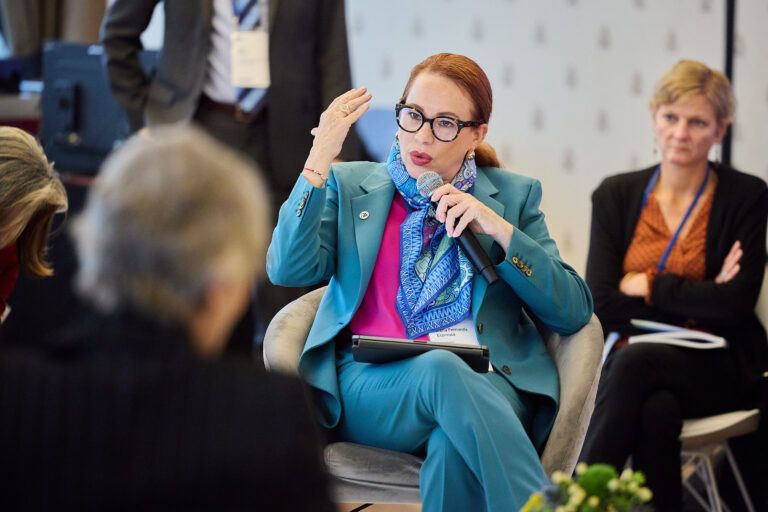
The Call for Gender Equality
The discussion highlighted the urgent need for women’s representation in politics. Phumaphi emphasized that “we need to see women in the political arena,” advocating for legal requirements that support gender parity in leadership roles. Flavia Bustreo pointed out that the underrepresentation of women in leadership positions is often due to government nominations that lack balance as shown in GWL Voices flagship report “Women in Multilateralism”. “How can we help these governments to propose in a balanced manner?” she asked, calling for a closer examination of the policies that organizations adopt.
In this context, Bustreo also discussed the upcoming Spotlight on Women in Health initiative that GWL Voices is preparing. This initiative aims to show the gender imbalances on the highest positions in health, to exhort governments and organizations to make evidence-based choices that can increase the number of women in leadership roles within the health sector.
María Fernanda Espinosa added that “gender equality is a political choice, and it’s about power sharing,” reinforcing the idea that systemic change is necessary for achieving equity in health and governance.
The Role of Female Leaders During the Pandemic
Helen Clark opened the discussion by highlighting how female leaders demonstrated exceptional qualities during the COVID-19 pandemic, however we continue seeing how women are often left out when it comes to health crises. “They showed empathy, listened to the evidence, and communicated effectively,” she noted. Clark emphasized that these attributes exemplify the essence of women’s leadership, which is critical in times of crisis. Her insights underlined the need for leadership that prioritizes human connection and responsiveness in health care.
Joy Phumaphi shed light on the entrenched biases that affect women’s health. “Women’s health issues come from deep-rooted biases—we are born with them and raise our children with this bias,” she stated. Joy urged that these biases are not just the responsibility of women but of society as a whole, saying, “We are all guilty, men and women, of promoting these biases.” She called for legal recognition and protection of women’s rights, emphasizing the need to combat these deeply entrenched biases while acknowledging that changing societal perceptions is an ongoing struggle.
The stark reality of gender inequality was further illustrated in the official photograph from WHS24, which featured 16 men and only 5 women, underscoring that gender disparities in leadership remain deeply rooted and highlight the urgent need for progress.
Breaking Down Stereotypes
Helen Clark further noted that women leaders tend to be more judged, often facing a consistent number of years in scrutiny. “We are really breaking down stereotypes when it comes to leadership,” she affirmed, highlighting the progress made in challenging traditional views about women in leadership roles.
Joy Phumaphi concluded with a powerful observation based on research about male allies: “Men who champion women were often raised by strong women themselves.” She emphasized that focusing on equality is crucial, stating, “If you have men focused on equality, then they will champion women because it is a human rights issue and a development issue.”
The Women’s Leadership for Women’s Health panel at the World Health Summit 2024 underscored the urgent need for diverse voices in global health discussions. The insights shared by the esteemed panelists illustrated that women’s leadership is not just beneficial but essential for addressing the unique challenges faced by women in health care. As the world continues to navigate complex health issues, the importance of empathy, understanding, and equitable representation becomes ever clearer. The ongoing disparities highlighted in the official WHS24 photograph serve as a reminder of the work that lies ahead in achieving gender equality in leadership.